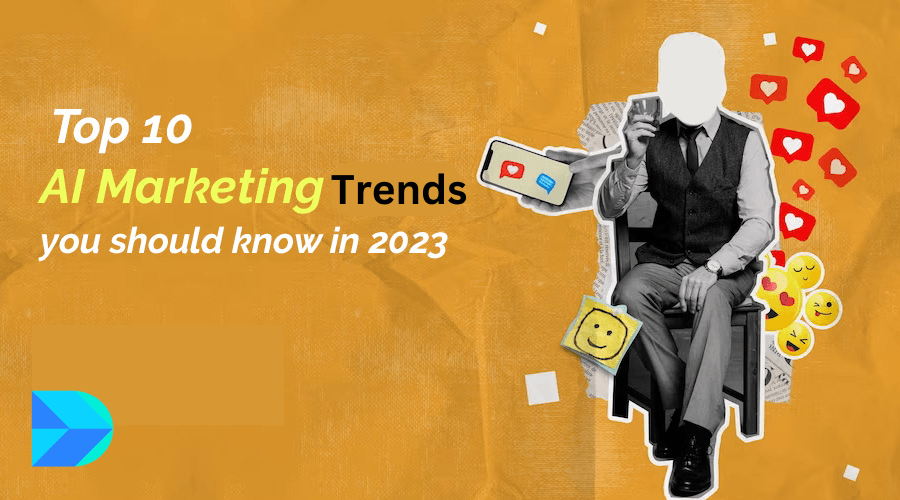Here are 10 AI marketing trends that you need to know in 2023:
- Hyper-Personalization: AI enables marketers to deliver highly personalized experiences to customers by analyzing vast amounts of data, allowing for targeted messaging, product recommendations, and tailored content.
- Conversational AI: Chatbots and virtual assistants powered by AI have become increasingly sophisticated. They can engage in natural language conversations, answer customer queries, provide recommendations, and offer personalized assistance.
- Voice Search Optimization: With the rise of voice assistants like Siri, Alexa, and Google Assistant, optimizing content for voice search is crucial. AI-powered voice recognition technology helps marketers understand and cater to user intent in voice-based searches.
- Predictive Analytics: AI-driven predictive analytics models help marketers forecast customer behavior, identify trends, and make data-driven decisions. These models analyze historical data, customer interactions, and market trends to predict future outcomes.
- Automated Content Creation: AI can generate content at scale, including blog posts, social media updates, and email newsletters. Natural language generation (NLG) algorithms analyze data and create human-like content, saving time and effort for marketers.
- Visual Search: AI-powered visual search technology allows users to search for products or information using images rather than text. Marketers can leverage this trend by optimizing their visuals for better visibility and providing relevant product recommendations.
- Augmented Reality (AR) and Virtual Reality (VR): AI combined with AR and VR technologies can create immersive and interactive experiences for customers. Marketers can leverage these technologies to showcase products, simulate real-life scenarios, and enhance brand engagement.
- AI-Enhanced Customer Support: AI-powered chatbots and virtual assistants can handle routine customer inquiries, provide support, and offer personalized recommendations, improving customer satisfaction and reducing response times.
- Sentiment Analysis: AI algorithms can analyze social media feeds, customer reviews, and online conversations to gauge customer sentiment. Marketers can use this data to understand customer preferences, improve products or services, and manage their brand reputation.
- Ethical AI: With increased reliance on AI, ethical considerations are paramount. Marketers must ensure that AI systems are transparent, unbiased, and respect user privacy. Adhering to ethical guidelines will help build trust and maintain customer loyalty.
Remember that while these trends are likely to shape AI marketing in 2023, the field is constantly evolving. It’s important to stay updated with the latest developments and adapt your strategies accordingly.
Also Read : How generative AI is creating new classes of security threats

